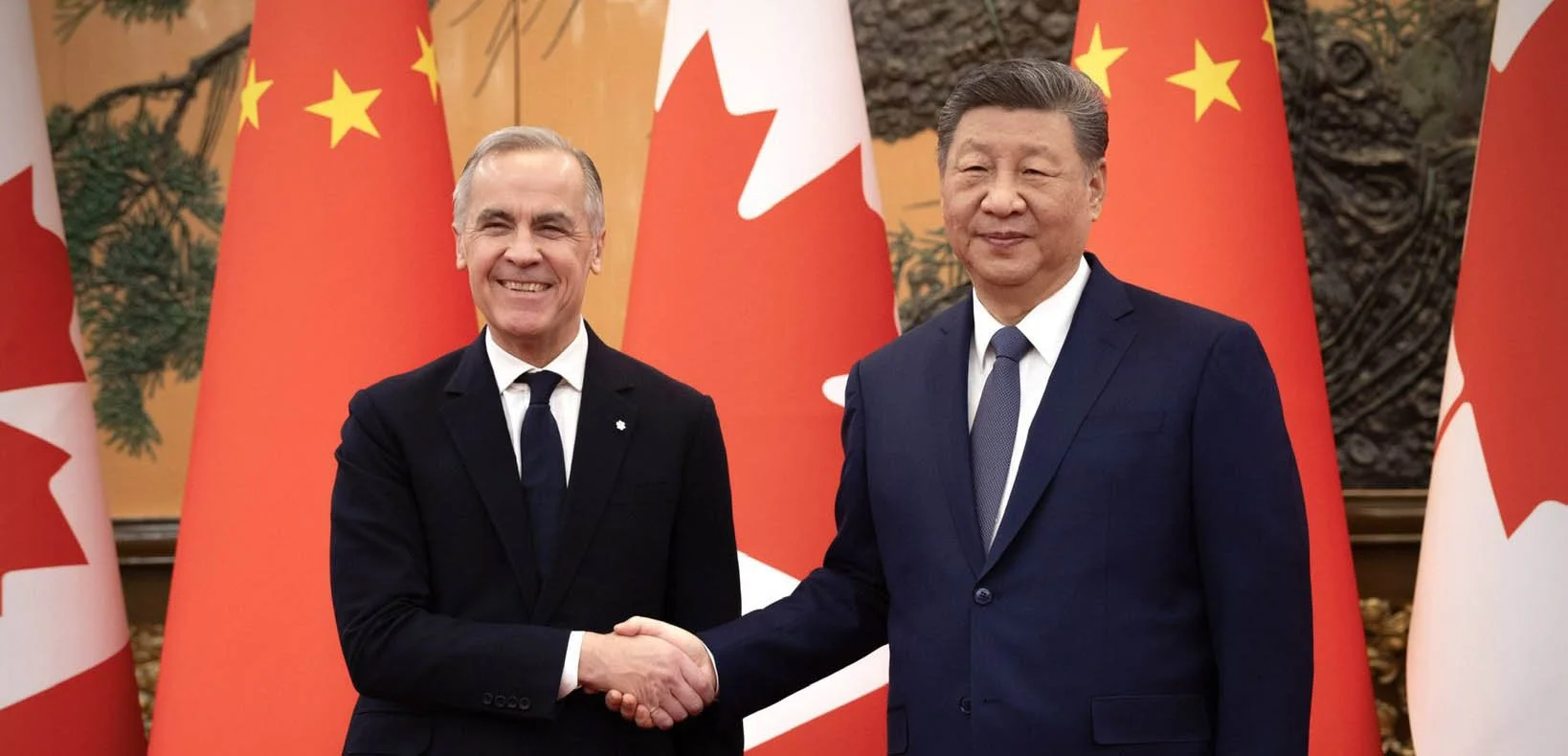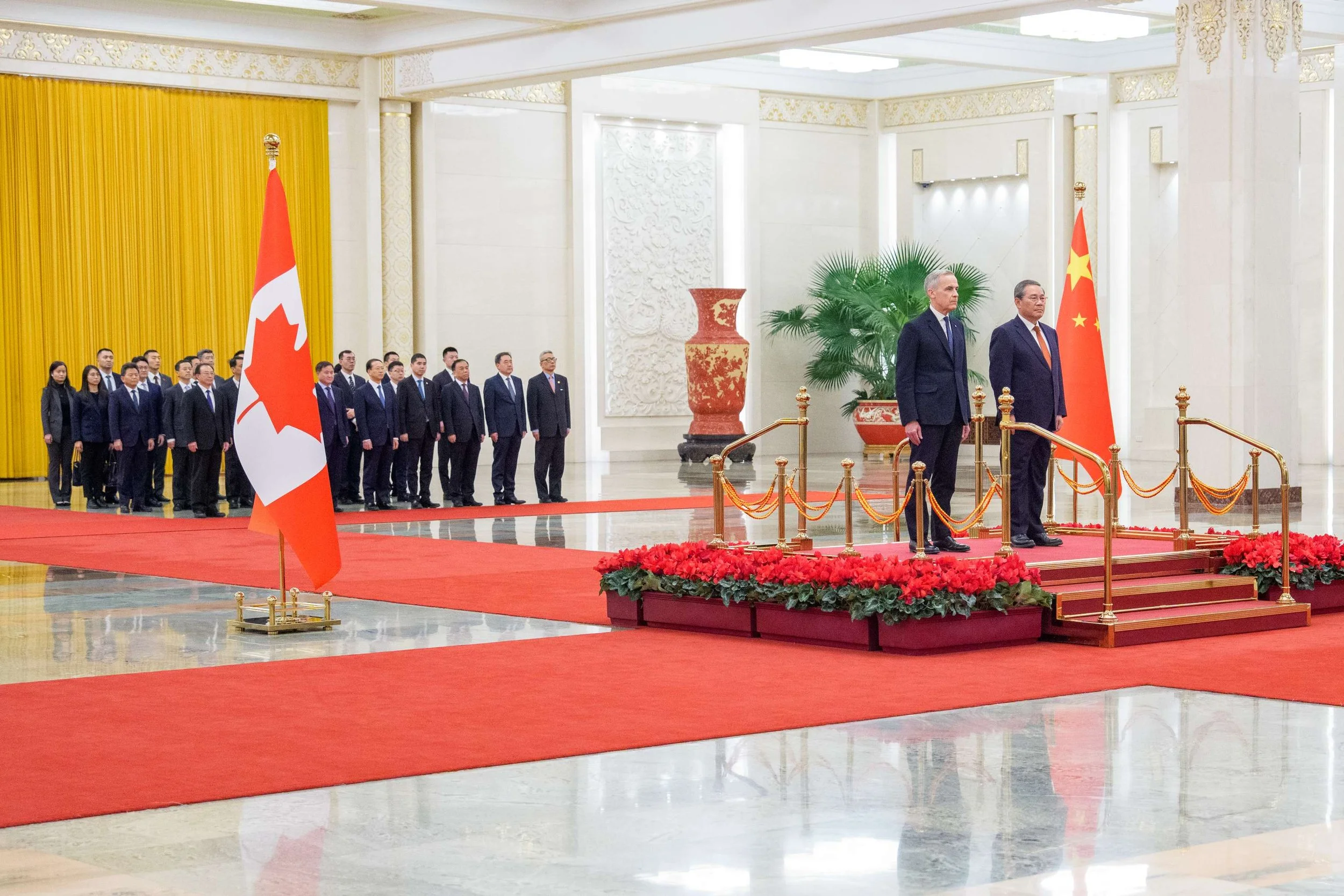Carney prioritizes steel, lumber as he admits zero tariffs may be out of reach
Prime Minister Mark Carney met with members of the United Steelworkers Local 1005 in Hamilton, Ont., this week. / TWITTER PHOTO
Prime Minister Mark Carney launched a major support program for the beleaguered steel industry as he sought to play down expectations of a return to full free-trade with the Americans.
The measures to help the steel sector came during a week in which the impact of President Donald Trump’s four-month-old tariff onslaught began to show up in every corner of the economy.
Saying “steel is the very foundation of Canada,” Carney responded to longstanding requests from steel producers by announcing a multi-faceted program to cushion the blow from Trump’s 50% import taxes. The package included limits on imported steel, hefty tariffs if those caps are exceeded, $70 million over three years to help steel workers get retrained and preferential use of Canadian steel in government procurement.
Carney said a top priority in the trade negotiations would be winding down the decades-old Canada-U.S. softwood-lumber dispute, even as the U.S. Commerce Department is poised to more than double anti-dumping and countervailing duties against Canadian softwood producers to 34.45% by September.
Lumber hopes
Ottawa appears to be considering an agreement with Washington on this issue meant to stabilize the Canadian sector by establishing quotas on exports to the U.S. B.C. Premier David Eby told Bloomberg News that, in his talks with Carney, he had discussed such a compromise with the Americans. “We think there is actually an opportunity for lumber to be one of the early agreements and wins that are struck,” Eby said. The prime minister told reporters that “some element of managed trade” has long been a part of softwood trade arrangements with the U.S.
Carney isn’t holding out much hope that he can convince Trump to restore Canada’s tariff-free access to the American market. "There's not a lot of evidence right now" that the U.S. is currently willing to cut any trade deals without some tariffs included, the prime minister said Tuesday.
He left open the possibility of placing permanent import duties on U.S. products if Trump maintains a baseline tariff on Canadian products. “We’ll see what the final agreement is, if there is an agreement,” he remarked. “We’re working towards an agreement in a constructive manner.”
Federal officials say negotiations with the White House are continuing in the face of an Aug. 1 deadline set by the president for working out a new trade arrangement. However, Trump unexpectedly announced a 35% across-the-board tariff on Canada last week.
But Carney noted that under Trump's current tariff regime, Canada has “almost free trade” with the U.S. and that the “effective tariff” against Canada is among the lowest on the globe. The White House continues to say Canadian imports that are compliant with CUSMA rules of origin will be tariff-free.
‘Obvious’ problems
Four months ago, the White House said about half of Canadian exports weren’t compliant with CUSMA because many of Canada’s exporters accepted low tariffs under World Trade Organization rules rather than do the paperwork to achieve tariff-free status under CUSMA. But that has rapidly changed, with RBC Economics saying 90% of Canadian exports are now going into the U.S. duty-free. Despite that, Carney said “there are obviously problems” with the U.S. sectoral tariffs that do apply universally to steel, aluminum and auto exports, with more tariffs threatened on copper, pharmaceuticals and lumber.
Dealing with Trump’s protectionist wall will be high on the agenda when Carney meets Tuesday with the premiers, who are holding their annual meeting in Huntsville, Ont.
Eby said he wants to ensure Carney understands that industries in Canada need the same level of support in the trade war as sectors such as auto manufacturing in Ontario. Discussing the talks in Huntsville, Saskatchewan Premier Scott Moe told CBC-TV it’s helpful that Carney is being realistic about the possibility of Canada being stuck with some tariffs at the end of current negotiations with Trump. “There will always be some carve-outs” in trade deals, Moe said, adding that Canadian businesses have always managed despite some foreign trade impediments.
Moe also said that, given the uncertain world trade environment, it’s vital for Canada to move ahead to eliminate the internal trade barriers holding down the Canadian economy. He invited all provinces to join in the New West Partnership Trade Agreement. The pact currently includes the four westernmost provinces.






